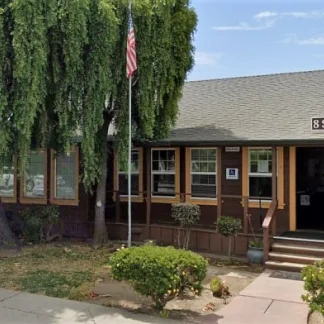CHS - Community Human Services - Outpatient Treatment Center
Community Human Services (CHS) offers outpatient treatment for individuals with ...
Sun Street Centers, located in Salinas, California, is an addiction treatment provider for men with substance use disorder. They also provide important community services, including case management and community referrals.
Addiction services at Sun Street Centers include mental health assessments and counseling, residential drug and alcohol rehab, and outpatient programs.
Mental Health Assessment & Counseling Assessments determine mental health status and addiction severity and are used to create a tailored treatment plan. Counseling is provided in individual, group, and family formats.
Substance Use Disorder Treatment Sun Street Centers offers inpatient rehab programs to men aged 18 and older. Staff apply evidence-based practices to treat addiction and mental health conditions. Treatment includes an assessment to determine individual needs, which informs an individualized treatment plan. The program includes individual and group counseling and psychoeducation.
Outpatient Programs Outpatient programs are for men that need addiction treatment but do not require 24-hour supervision. Outpatient sessions are run during the day or in the evenings and involve individual and group therapy, educational groups, relapse-prevention strategies, and aftercare planning.
Contact us for more information: (831) 753-5145

Connect with Sun Street Centers - Men's Residential Program by calling their admissions team directly.
(831) 753-5145 Website Get DirectionsThe Commission on Accreditation of Rehabilitation Facilities (CARF) is a non-profit organization that specifically accredits rehab organizations. Founded in 1966, CARF's, mission is to help service providers like rehab facilities maintain high standards of care.
CARF Accreditation: Yes
Although much has been written, studied, and developed concerning the treatment of the addict, not much has been developed in the way of fostering family healing within the addict’s close relations. Many fail to recognize the effect the addict’s use and behavior have had on the family. Family members themselves don’t always recognize the full impact of addiction in their lives. For many, returning home may not be as joyous as one would hope. This curricula is designed to nurture healing and growth within the family unit. It is my hope that it will complement and enhance the client’s treatment episode, while teaching valuable skills to both the client and willing members of the client’s family, fostering understanding, compassion, and cohesiveness, to aid in a successful recovery for all. After all, it has been suggested that addiction is a family disease.
Group therapy is any therapeutic work that happens in a group (not one-on-one). There are a number of different group therapy modalities, including support groups, experiential therapy, psycho-education, and more. Group therapy involves treatment as well as processing interaction between group members.
In individual therapy, a patient meets one-on-one with a trained psychologist or counselor. Therapy is a pivotal part of effective substance abuse treatment, as it often covers root causes of addiction, including challenges faced by the patient in their social, family, and work/school life.
Group therapy is any therapeutic work that happens in a group (not one-on-one). There are a number of different group therapy modalities, including support groups, experiential therapy, psycho-education, and more. Group therapy involves treatment as well as processing interaction between group members.
In individual therapy, a patient meets one-on-one with a trained psychologist or counselor. Therapy is a pivotal part of effective substance abuse treatment, as it often covers root causes of addiction, including challenges faced by the patient in their social, family, and work/school life.
In individual therapy, a patient meets one-on-one with a trained psychologist or counselor. Therapy is a pivotal part of effective substance abuse treatment, as it often covers root causes of addiction, including challenges faced by the patient in their social, family, and work/school life.
Community Human Services (CHS) offers outpatient treatment for individuals with ...
Door to Hope -- The Door is a nonprofit drug and alcohol addiction treatment pro...
Sun Street Center – Central Avenue is a private rehab located in Salinas, Califo...
Door to Hope is a nonprofit mental health and substance abuse recovery program i...